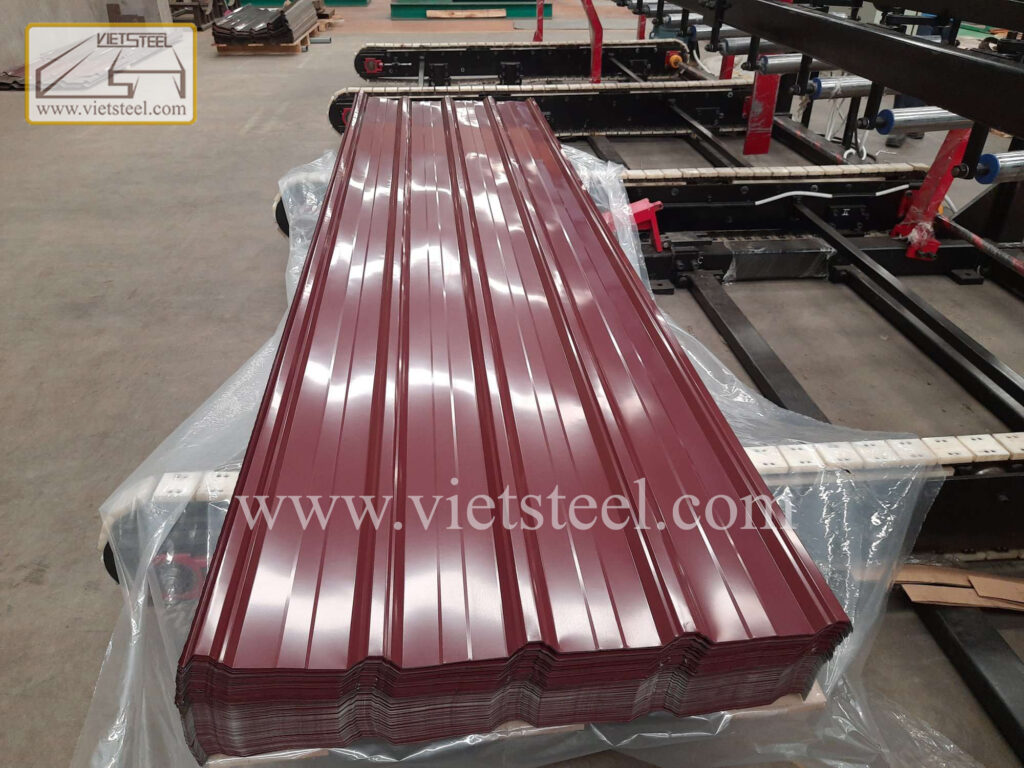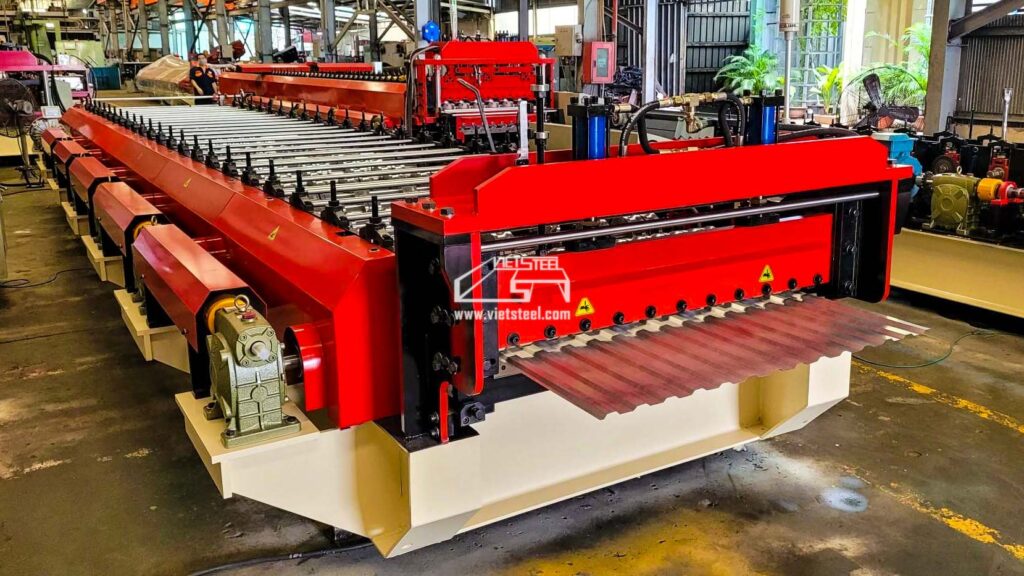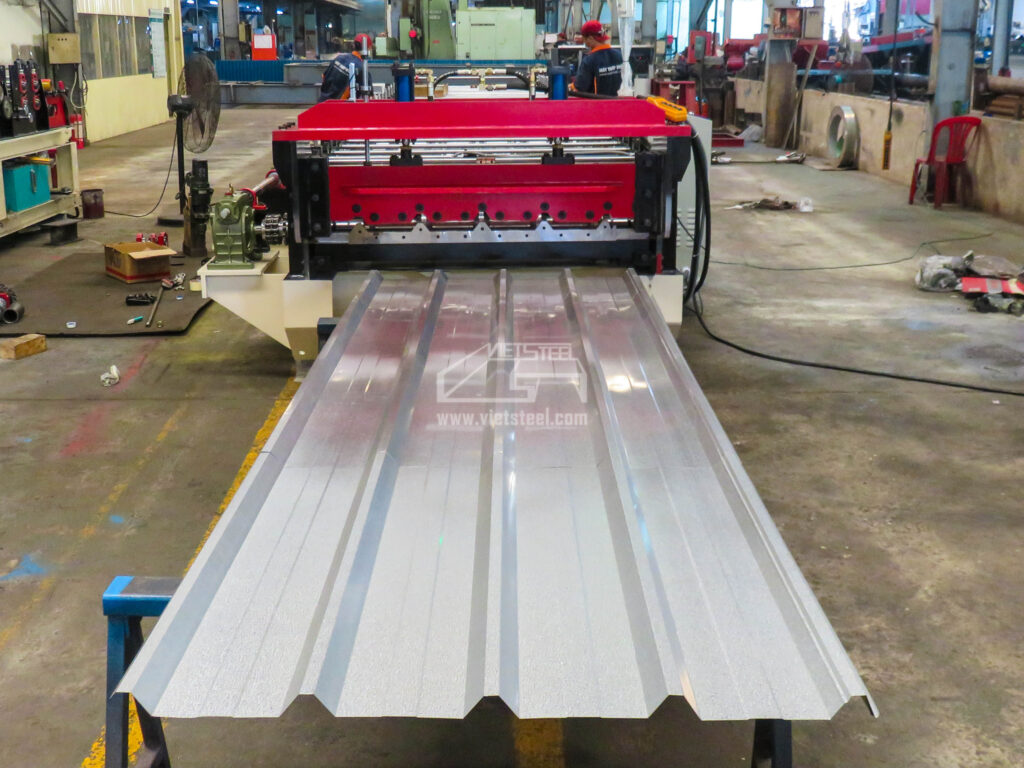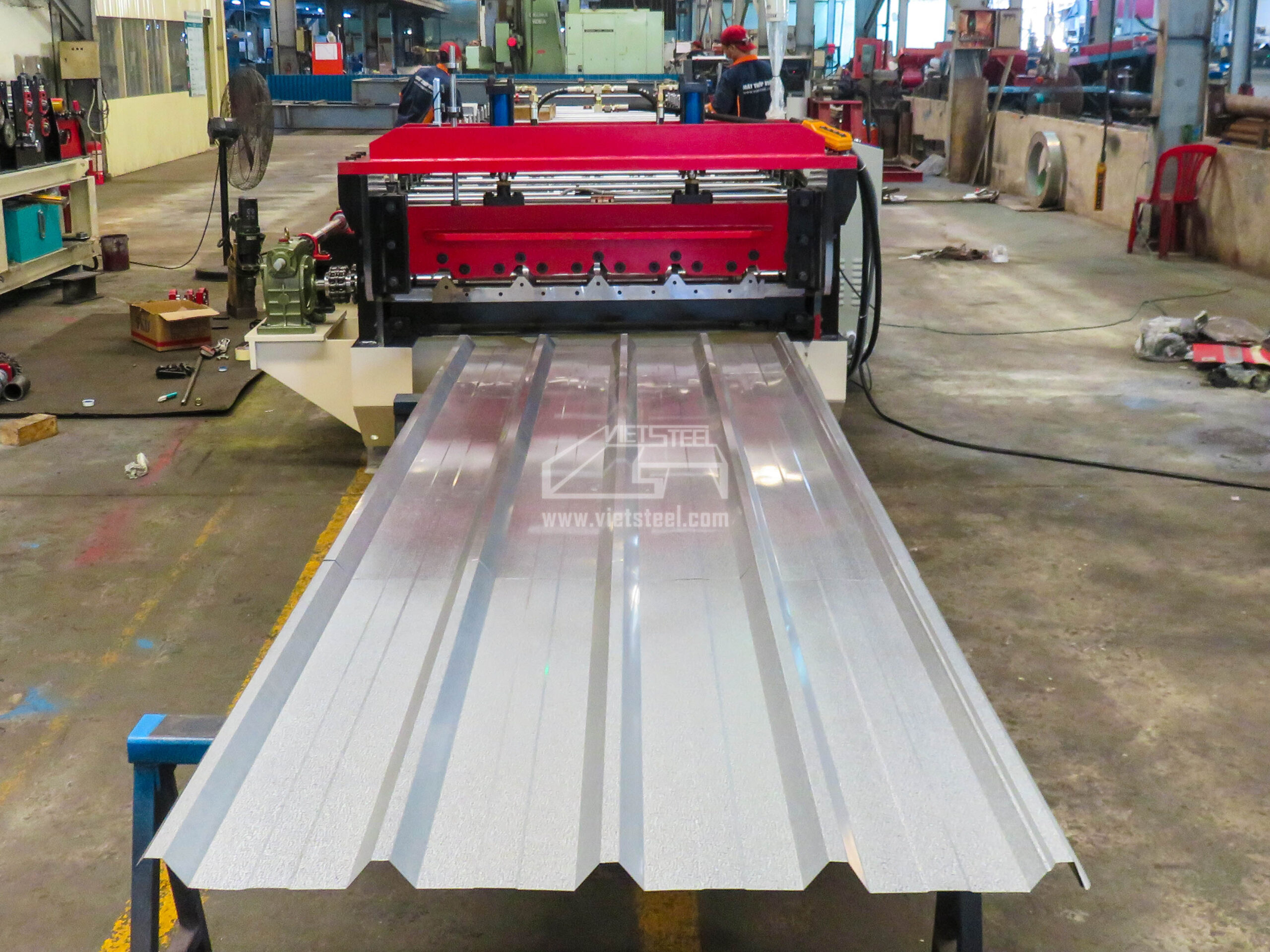The material thickness for a roofing roll forming machine can indeed vary based on the specific machine and its intended application. In the context of roofing, typical sheet thicknesses often fall within the range of 0.2mm to 0.6mm. This range is suitable for creating durable and lightweight roofing materials.
The term “gauge” is commonly used to measure the thickness of materials. It’s important to note that gauge can refer to different measurement systems, and the specific gauge scale depends on the material being measured. For example, in the United States, the gauge scale for metal sheets, including those used in roofing, is often referred to as the “Gauge” or “GA” system. In this system, a lower gauge number corresponds to a thicker material. Conversely, in some other countries, thickness may be measured in millimeters.
Manufacturers and engineers typically specify the required material thickness based on factors such as the structural requirements of the roofing system, the type of material being used, and the environmental conditions the roof will be exposed to. The goal is to achieve the right balance between strength, weight, and other relevant properties to ensure the roofing material meets the performance standards for its intended application.

Material Compatibility: Roofing roll forming machines are designed to work with specific material thicknesses. It’s essential to choose a machine that is compatible with the thickness of the roofing material you intend to use. This ensures proper forming and reduces the risk of damage to the machine.
Machine Adjustability: Some roll forming machines are adjustable, allowing you to change the settings to accommodate different material thicknesses. This flexibility can be valuable if you plan to work with various roofing materials or if your project specifications require different thicknesses.
Profile Design: The thickness of the material can affect the design and profile of the roofing sheet. Thicker materials may influence the overall strength and structural integrity of the roofing system. The roll forming machine should be capable of producing the desired profile with the chosen material thickness.
Material Quality: The quality of the roofing material, including its thickness, impacts the longevity and performance of the roofing system. Ensure that the material used meets industry standards for thickness and quality to achieve the desired results.
Manufacturer Recommendations: Follow the manufacturer’s recommendations regarding the acceptable range of material thickness for the specific roll forming machine model you are using. This information is typically provided in the machine’s technical specifications.
By carefully considering the material thickness and selecting a roll forming machine that aligns with your project requirements, you can achieve accurate, efficient, and high-quality production in roofing applications

Yield Strength
Yield strength is a crucial mechanical property of materials, indicating the maximum stress a material can withstand before undergoing plastic deformation or permanent changes in shape.
In the case of galvanized steel, various grades are classified based on their minimum yield strength, typically measured in megapascals (MPa). The examples you gave, G300 and G550, are commonly used to represent different grades of galvanized steel:
G300: This grade has a minimum yield strength of 300 MPa. It is suitable for applications where moderate strength is required, such as in the production of light structural components and general manufacturing.
G550: This grade has a higher minimum yield strength of 550 MPa, indicating a stronger material. G550 is used in applications where greater structural strength is necessary, such as in the construction of buildings, bridges, and heavy-duty industrial equipment.
Choosing the appropriate grade of galvanized steel depends on the specific requirements of the application, with factors like the structural load, durability, and environmental conditions being taken into consideration. Higher-grade steels are often employed in scenarios where increased strength and load-bearing capacity are essential.
Tensile strength
Tensile strength is indeed the maximum stress that a material can withstand before breaking or experiencing permanent deformation. It is a crucial mechanical property that measures the material’s ability to endure pulling forces or tension.
When a material, such as steel, is subjected to tensile stress, it undergoes elongation until it reaches a point where it can no longer withstand the applied force, leading to rupture or fracture. The tensile strength is typically expressed in units of pressure, such as megapascals (MPa) or pascals (Pa), depending on the system of measurement.
In engineering and materials science, tensile strength is a key parameter in assessing the performance and suitability of materials for various applications. It provides valuable information about a material’s ability to withstand stretching or pulling forces, making it essential in the design and selection of materials for structural components, machinery, and other applications where tensile forces are significant.

The Vietsteel Team has informed you that the material thickness for a roofing roll forming machine may vary depending on the specific machine and its intended application. Remember to keep an eye out for the next installment of our series, defineterms, for additional useful information.
More further information about roofing roll forming machine: [Click Here]
For more information on VIETSTEEL’s products and pricing, interested parties can contact our hotline at
+84 906 898 860 or send an email to vietsteel@vietsteel.com.
Other product:
Corrugated Roll Forming Machine
Step tile Roll Forming Machine
Double Deck Roll Forming Machine
Kliplock Roll Forming Machine
Seamlock Roll Forming Machine
Floordeck Roll Forming Machine
V-lock Roll Forming Machine
C truss Roll Forming Machine
Hollow Roll Forming Machine
Batten Roll Forming Machine
Purlin Roll Forming Machine
Cable tray roll forming machine
Uncoiler and Re-coiler
